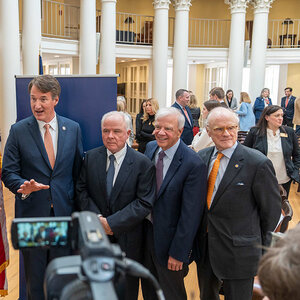Pew Charitable Trusts Awards $3 Million for Emerging Nanotechnologies Project
The Philadelphia-based Pew Charitable Trusts has announced a $3 million grant to the Woodrow Wilson International Center for Scholars in Washington, D.C., for a project to help businesses, governments, and the public anticipate and manage the possible health and environmental implications of emerging nanotechnologies.
Nanotechnology refers to working with matter at the scale of one billionth of a meter, or less than one one-hundred-thousandth the width of a human hair. Researchers are exploring ways to see and build at the atomic and molecular level, re-engineering familiar substances like carbon and gold to create new materials with novel properties and functions.
The two-year Project on Emerging Nanotechnologies is part of the Trusts' growing portfolio of emerging technology projects, which currently includes reproductive genetics and agricultural biotechnology. The Wilson Center plans to bring together leaders from industry, government, research, and other sectors to take a long-term view of what is known and unknown about potential health and environmental challenges posed by emerging nanotechnologies, and to develop recommendations to manage them. The project will also produce reports, case studies, and analyses about potential nanotechnology risk management strategies.
"Nanotechnologies hold tremendous societal and economic benefits, from new cancer therapies to pollution-eating compounds, from super-light-weight materials to detectors for biohazards like anthrax," said Pew president and CEO Rebecca W. Rimel. "However, if history is a guide, nanotechnology's long-term success will depend on the willingness to tackle potential health and environmental issues associated with this emerging technology early and collaboratively."





